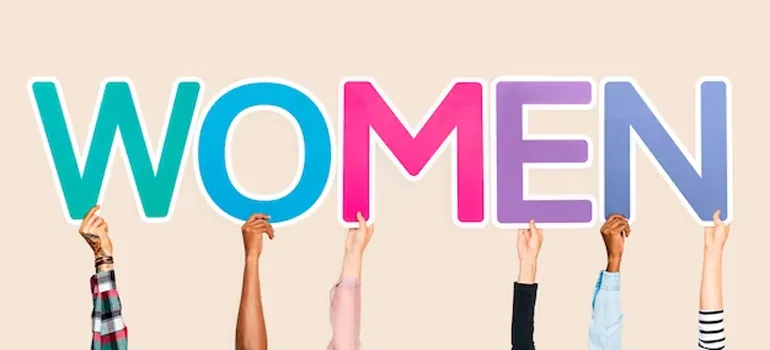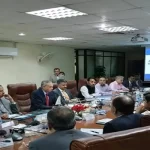
Women’s Empowerment
Gender inequality has long been a problem in Pakistan, where women’s empowerment is a critical concern. While there have been notable advancements in the area of women’s empowerment over time, numerous obstacles still exist. This article will examine the advancements made in Pakistani women’s empowerment, examine the obstacles still facing the movement, and talk about future prospects for growth.
Advances in the Empowerment of Women
- Education:
The expansion of educational opportunities for women in Pakistan represents one of the most important steps toward their emancipation. The government has been working to close the gender gap in education, and as a result, more girls are enrolling in schools and universities. Programs such as the “Girls’ Education Program” have played a major role in driving up female enrollment.
- Employer Participation
Women’s employment participation has increased noticeably the number of women entering the profession has increased significantly, and they are now working in a variety of fields, such as information technology, healthcare, and education. In addition to promoting the Women’s International Growth Centre (IGC) website. economic independence, this increase in employment participation benefits the nation as a whole.
- Advertisement -
- Legal Changes:
Pakistan has enacted a number of legislative changes to uphold and advance the rights of women. These include laws that prohibit harassment, domestic violence, and forced marriages. One noteworthy example of legislation that has improved workplace safety for women is the “Protection Against Harassment of Women at the Workplace Act”.
- Democratic Representation
The representation of women in politics has also improved. Women’s political participation has expanded as a result of the creation of designated seats for them in national and provincial assemblies. These have the inclusion of female-only seats in national and local assemblies has raised the number of women participating in politics. Strong female voices supporting women’s rights and gender equality have become more prominent as a result of this.
Obstacles to the Empowerment of Women
- Violence Against Women
The most urgent problem is violence against women. Domestic violence, honour killings, and other forms of abuse against women continue to be widespread problems UN Women – Asia Pacific Pakistan page.in Pakistan. Often, there is a lack of legal enforcement and cultural standards that make it difficult to successfully tackle this issue.
- Restricted Business Possibilities
Even while the number of women working is increasing, there are still obstacles standing in the way of economic empowerment. Women’s economic advancement is hampered by gender wage discrepancies, restricted access to financial resources, and a lack of workplace policies that support women.
- Limited Healthcare Access
Women often have difficulty getting access to high-quality healthcare in remote locations. As a result, maternal death rates continue to be high, underscoring the need for better healthcare awareness and infrastructure.
- Variations in Education
Even while girls’ education has improved, there are still gaps, especially in rural and underprivileged areas. A lot of girls are compelled to leave school because of early marriages, cultural expectations, or financial limitations.
- Social and Cultural Norms
Women’s independence and possibilities are nonetheless constrained by societal expectations and deeply rooted cultural conventions. Attempts to empower women are frequently undermined by patriarchal ideals.
Possibilities for Additional Empowerment
- Financial Inclusion
Increasing women’s economic engagement ought to be a primary goal. This includes encouraging female entrepreneurs, bridging the pay gap, and lending money to companies run by women.
- Knowledge and Consciousness
We must keep working to raise awareness and educate the public, paying particular attention to underserved communities. Scholarships, public awareness initiatives, and career training programs can assist women in acquiring the skills and information required for success.
- Regulatory Compliance
It is crucial to enforce current legislation protecting women’s rights and to enact stronger measures to combat gender-based violence. The implementation of specialist courts and police training programs can enhance the execution of these laws.
- Accessibility of Healthcare
Maternal mortality rates and general health inequities can be decreased by strengthening the healthcare system, particularly in rural regions, and educating women about their rights.
- Adapting to Social Norms
Actions to alter cultural norms and attitudes about women should be comprehensive and involve local authorities, institutions of religion, and grassroots groups. This could involve workshops, media initiatives, Women’s Empowerment
Conclusion
In Pakistan, women’s empowerment has advanced significantly in the last several years, yet big obstacles remain. For progress to continue, it is imperative to address issues like gender-based violence, expand economic inclusion, improve access to healthcare, and alter societal norms. In addition to being a question of human rights, women’s empowerment is crucial for Pakistan’s social and economic advancement. To guarantee everybody a more just and prosperous future, the government, civic society, and individuals must work together as a collective.

FAQs
What does Pakistani women’s empowerment entail?
In Pakistan, the process of giving women the capacity to make decisions, engage in the economy, and exercise their agency and rights in a variety of spheres of life is known as women’s empowerment.
What strides has Pakistan made toward the emancipation of women?
Pakistan has achieved notable strides in domains like education, labour force participation, legislative modifications, and female political representation.
What are the main obstacles that Pakistani women face in their quest for empowerment?
Issues include healthcare inequalities, gender-based violence, a lack of economic possibilities, and deeply ingrained cultural norms that frequently limit the freedoms and opportunities available to women’s empowerment.
How can Pakistan encourage women’s empowerment?
Important tactics include advancing healthcare accessibility, enforcing legal rights, promoting economic inclusiveness, raising awareness and education levels, and altering social norms.
More Read Tourism-promotion-in-pakistan





